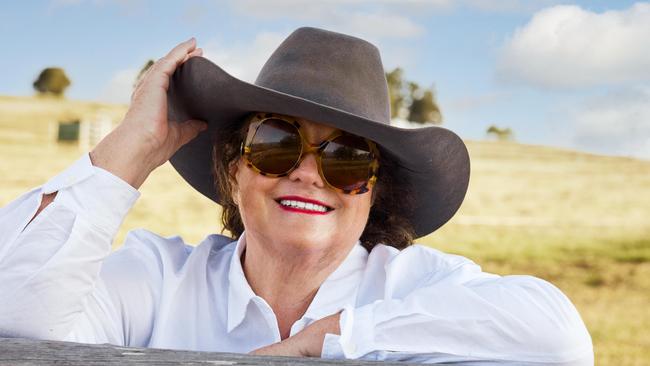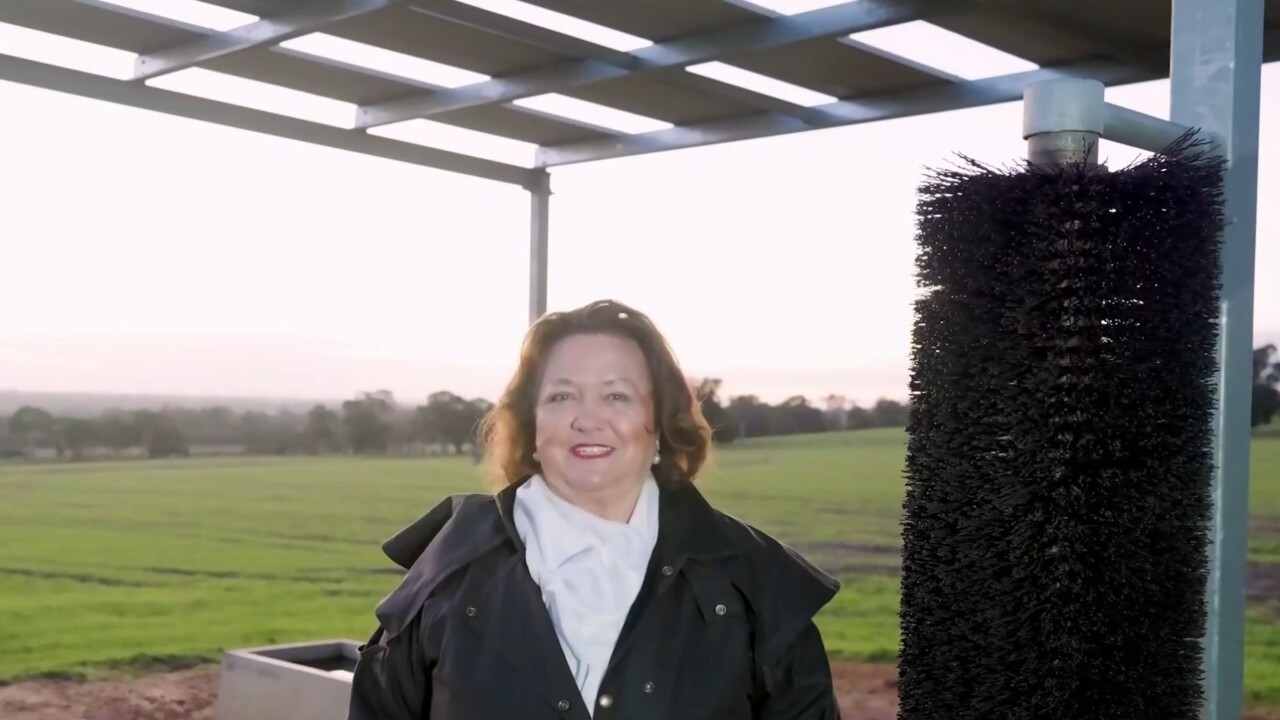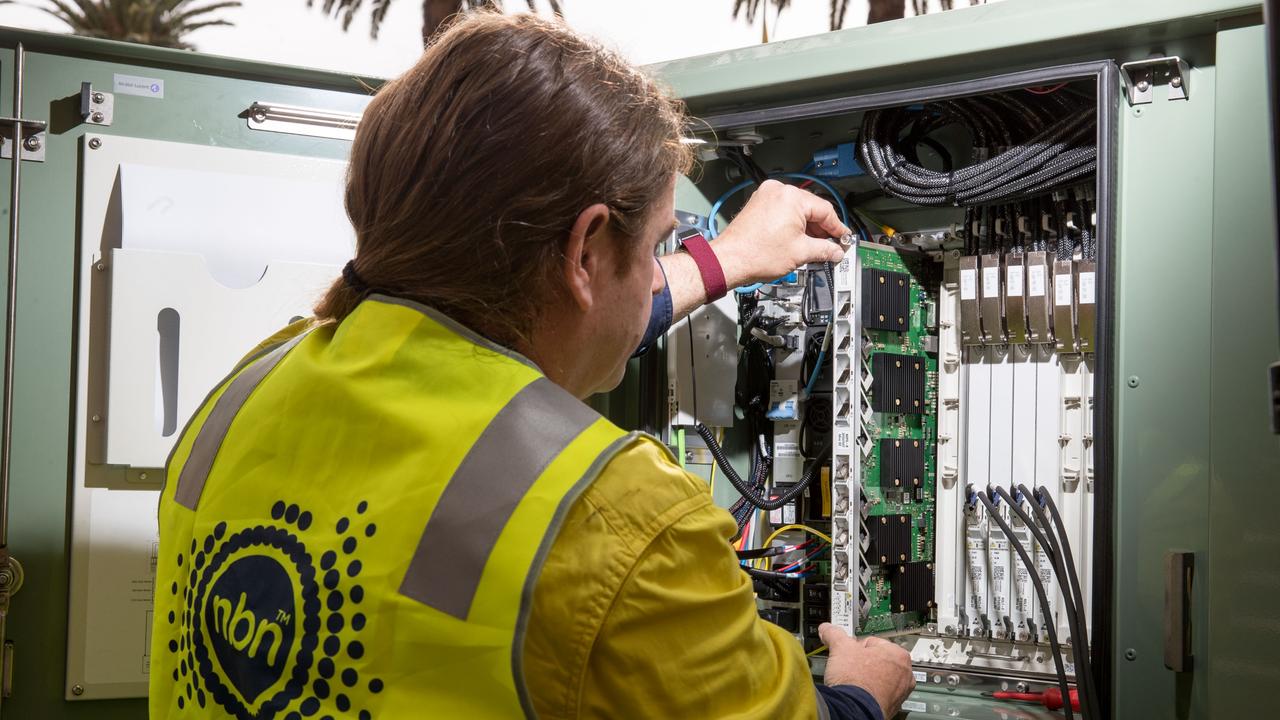Bush Summit: Fossil-fuel approach ‘foolhardy’, says Gina Rinehart
The billionaire will raise concerns over the ability of renewable energy to replace baseload coal and gas, saying ‘humungous’ spending will be needed on solar and wind as Australia’s electricity grid faces an uncertain path to green power.

Billionaire Gina Rinehart has raised concerns over the ability of renewable energy to replace baseload coal and gas, saying “humungous” spending will be needed on solar and wind as Australia’s electricity grid faces an uncertain path to green power.
The mining executive will tell The Australian’s Bush Summit in Port Hedland on Friday that both state and federal governments in Australia were “choosing to throw away” Australia’s natural commodity advantages by sidelining the twin fossil fuels and not embracing nuclear.
“The truth needs to be known, the so-called sustainable energy can’t underpin our base power load requirements, the sun doesn’t always shine, wind doesn’t always blow, the additional capital to try to hook this in will be humungous,” Mrs Rinehart will tell the summit.
“Different sources of energy are simply not the same when we measure how often they are able to produce electricity over a given period of time. In Australia, solar panels generate electricity for about 20-25 per cent of the year, wind is only a little better, typically it has a ‘capacity factor’ between 30-40 per cent.”
Mrs Rinehart’s Hancock is the 70 per cent owner of Roy Hill, the Pilbara iron ore miner she built from the ground up. She also controls vast rural holdings through the S. Kidman & Co cattle stations and Australian retail brands such as Driza-Bone jackets and Rossi boots.
Her caution over the scale of the renewables challenge follows a warning that households face an ongoing multi-year risk of power shortages in NSW, Victoria and South Australia from this summer.
The Australian Energy Market Operator says reliability risks could derail the electricity grid unless a new wave of energy supplies is urgently developed.
While both main political parties have indicated support for the ongoing role of gas in Australia’s economy, the majority of coal for electricity use will be phased out by the end of this decade.

Meanwhile, Peter Dutton has stated an ambitious plan for the rollout of nuclear power later next decade but cost and social licence issues may hinder getting the industry off the ground.
Mrs Rinehart will say “baseload” technologies are a sound supply source for the power grid.
“Hydropower can be a little better again, perhaps generating power 50 per cent of the time, although we’ve all read about the challenges of Snowy Hydro 2, which is currently predicted to start seven years late at a mind-boggling all-in cost in excess of $22bn,” Mrs Rinehart will tell the summit.
“Compare those to coal and natural gas. These thermal power plants typically have capacity factors of 70-90 per cent because they can generate electricity consistently as long as fuel is available.”
Nuclear should also be considered in the mix given its long, consistent operating life once online, she will say. “Although it’s not here – well not yet anyway – nuclear power would be the best of the lot operating over 90 per cent of the time as it requires less maintenance and is designed to operate for longer stretches.”
Concerns over the scale and pace of Australia’s renewable rollout has some officials on edge, given the hefty volume of major projects to be delivered to market to ensure the grid makes a seamless move to green energy.
Australia will need to install 16 times its current capacity in batteries and pumped hydro by 2050, while large-scale wind and solar generation will have to jump sixfold if the country is to achieve a transition to net-zero emissions by 2050.
While the commitment to more than double renewable supplies by 2030 remains, delivering projects into the grid has been plagued by delays and connection issues.
A bulging pipeline of renewable energy developments has been held back by construction and registration delays, with the market operator this month flagging a substantial increase in the time taken to deliver projects into the nation’s grid.






To join the conversation, please log in. Don't have an account? Register
Join the conversation, you are commenting as Logout